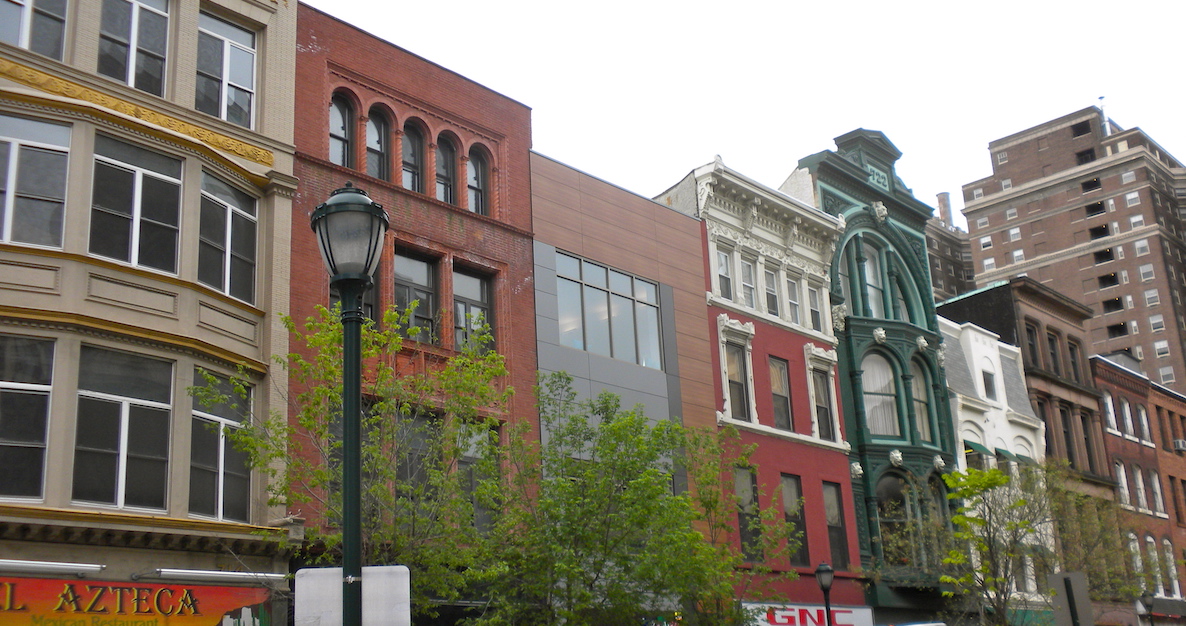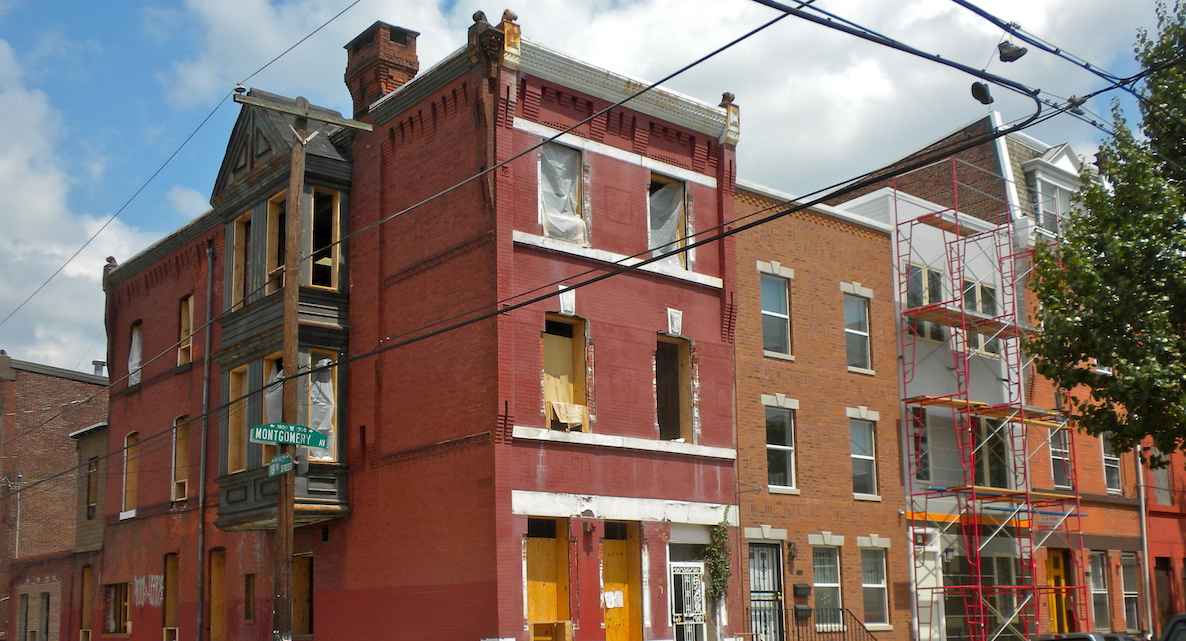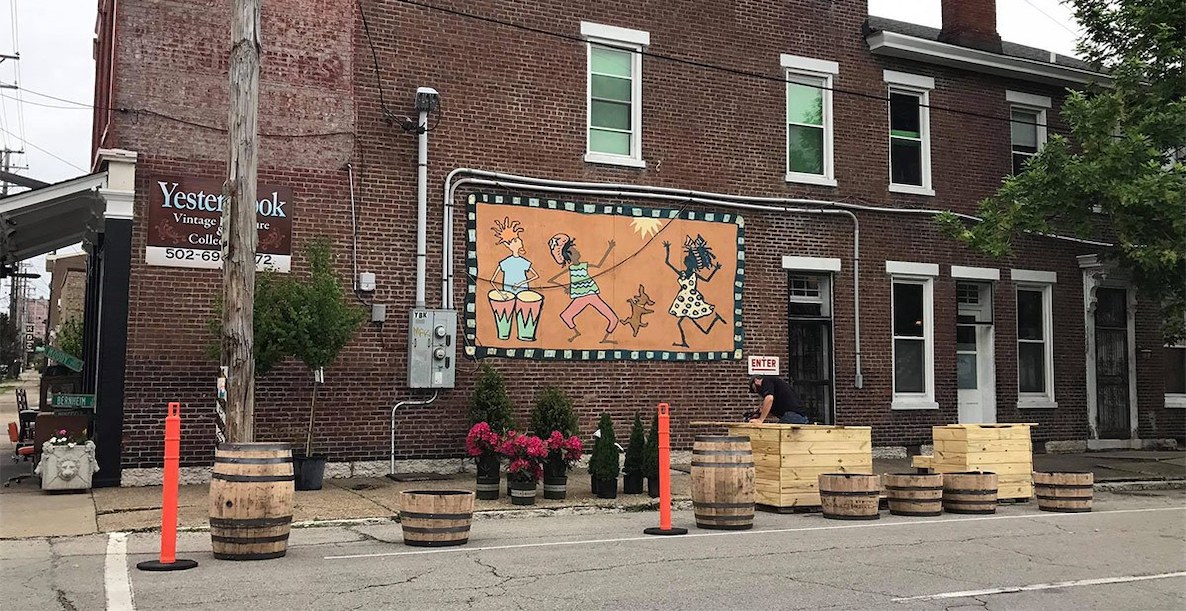The national conversation around Opportunity Zones is shining a spotlight on a much more important development in places across America: a complete re-thinking of economic development, community development, and broadly, how America as a society is trying to create wealth in all its communities—especially the ones that have been left behind.

Prefer the audio version of this story? Listen to this article on CitizenCast below:

In a blog post last week we hinted at a thesis from a 30,000-foot level: that the next wave of economic and community development is no longer originating in Washington, D.C., Wall Street, or the board rooms of the country’s largest foundations, but at thousands of street corners across America.
Street corners offer disinvested communities the opportunity to create a dense ecosystem of businesses, entrepreneurial hubs, health clinics, and residences at vital intersections and drive not only neighborhood revitalization but also local wealth building. As Jane Jacobs observed nearly 60 years ago, the co-location and concentration of mixed economic and social activities in same modes has a synergistic effect that naturally comes from the density and diversity of uses.
Shelby Park, Louisville, Kentucky
Shelby Park, Louisville, has a history that echoes thousands of census tracts across the country. Shelby Park grew up in the early 1900s as an immigrant community for Louisville’s burgeoning German population, and by the 1950s, the neighborhood was a predominantly middle-class African-American neighborhood.
In the early 20th Century, Shelby Park was emblematic of national investment in urban neighborhoods: Shelby Park itself, the neighborhood’s centerpiece, is an Olmstead park, following the tradition of New York’s Central Park, Boston’s Back Bay, Washington’s Capitol Grounds, and Stanford University, where we will gather next week. The centerpiece of Shelby Park is a Carnegie Library, one of over 2,500 libraries built in neighborhoods across America by philanthropist Andrew Carnegie to make knowledge more democratic and accessible.
As one resident said: “It makes me feel better about the neighborhood. I used to be embarrassed to have people over, now I show off the neighborhood.”
Louisville has always had the culture of a southern city, and segregation was top of mind there as it was across the country, but in the 1960s urban planning dealt Shelby Park an economic death blow. The construction of Interstate 65 and its feeder highways transformed Shelby Park from an economically dynamic neighborhood connected to downtown into a pass-through neighborhood cut off from greater economic activity by an Interstate. The primary commercial street, Shelby, was converted to two one-way lanes helping wealthier white Louisville citizens get to the suburbs more quickly. In the space of a few years, Shelby Park became a neighborhood that people were encouraged to drive through rather than enjoy.
![]()
By 2010, Shelby Park was still a majority African-American community, but the dynamics had shifted: between 2000 and 2010 alone, Shelby Park had lost 20 percent of its population; 52 percent of the population was below the poverty line; 26 percent was in the labor force but unemployed; and only 20 percent had a degree from an institution of higher education.
This story has happened in communities across America.
Access Ventures: a “community quarterback”
In 2014, Bryce Butler, a local community leader, started thinking through how to engage with Shelby Park. Bryce’s initial engagement was through the philanthropic/community development world—he was talking with several philanthropists about buying houses, fixing them up, and helping Shelby Park residents own them through a rent-to-own model. Yet after spending time in the community, he realized that what the community needed was not a few one-off deals, but systematic investment in a more dynamic economy.
Shelby Park didn’t need a program. Instead of focusing on one domain—“startups,” “housing,” “workforce training”—as a philanthropic grantmaker, private investor, or government program might, Bryce focused on an entire ecosystem.
There are literally thousands of street corners that have the potential to be turned on, reanimated and re-energized all across the United States.
He launched a group called Access Ventures that is one of what we define as the new wave of community development institutions: hyper-focused on street corners and neighborhoods, and able to raise and manage multiple types of capital.
Over a 2-year period, Access Ventures invested $4 million in:
- 8 residential real estate properties. Over the course of several years, Access Ventures renovated the properties using a non-traditional workforce of formerly incarcerated, homeless, or individuals struggling with substance abuse. All residential properties now are occupied by residents who are transitioning from renters to owners.
- 4 commercial properties, transitioning the main street of Shelby Park to a thriving economy. One example is 739 Oak Street, a large commercial building that formerly was known to neighbors as a nexus of sex trafficking and drugs. Today its “front door” is Scarlet’s Bakery, started by a local ministry that helps women who formerly worked in sex trafficking find living wage jobs. Down the street, at 1229 S. Shelby, The Park was Louisville’s first co-working space when it opened.
- 5 growth operating companies in Shelby Park through a venture capital/private equity structure. One is MobileServe, a local startup that has quickly grown to over $1M in revenue and creates meaningful jobs locally. Access Ventures has also introduced products from other investments they have made into Shelby Park, including Virtuous Software, a CRM to help nonprofits build relationships, and Fig Loans, which provides non-exploitative financial services for underbanked individuals.
- Access Ventures has provided risk capital, both in house and through partnerships to main street businesses like Scarlet’s Bakery. For example, they launched a character-based, no collateral required loan for local businesses called the Growth Loan that also has a volunteer loan committee that determines terms. This product is now being carried into other parts of the country through a technology platform they are developing with support from the Kauffman Foundation called Lenderfit, a future ready software to simplify small business lending. Each of these products were informed by their Shelby Park experience. In 2014, Access Ventures brought a partnership with Kiva to Louisville to address issues on a larger scale that could realize local impact.
- Access Ventures also worked with philanthropic partners to help preserve the arts, culture, and history of the neighborhoods–for example, commissioning local residents to paint murals on rehabbed buildings. One program, CreativeMornings, began in Shelby Park to identify avenues to invest in the future of the city and, by extension, its neighborhoods.
What are the results?
Access Ventures has invested private and philanthropic capital across categories. Over the last four years, over 200 new jobs have been created for residents.
![]()
The multi-pronged approach addressed the isolation that frequently overcomes community investment efforts in distressed neighborhoods, and the density developed through the project spurred market-level change. As one community-based organization leader remarked, “It has taken years to get the revitalization ball rolling, and now it’s rolling downhill in the right direction.”
Since 2011, housing vacancy rates have decreased six percentage points and poverty rates have decreased perceptibly, with little to no displacement of current residents. Further, the outlook of the neighborhood has improved. According to residents, the investment has resulted in fewer vacancies, rejuvenated investments in housing, less crime, and new businesses. Importantly, they note “things that haven’t changed: most of the neighbors on [the] block.” Local organizations credit Access Ventures for their work in the neighborhood. As one community partner described it, “Their comprehensive approach to making the community better has benefited all of us who live or work here.”
Shelby Park didn’t need a program. Instead of focusing on one domain—“startups,” “housing,” “workforce training”—as a philanthropic grantmaker, private investor, or government program might, Bryce focused on an entire ecosystem.
Momentum is picking up in Shelby Park, too. Later this year, the Logan Street Market will open in the neighborhood as a community space, farmer’s market, and public arena similar to Findlay Market in Cincinnati or Union Market in Washington, D.C. As one resident said: “It makes me feel better about the neighborhood. I used to be embarrassed to have people over, now I show off the neighborhood.”
What can we learn?
Access Ventures’ work in Shelby Park is instructive, but certainly not “one-size-fits-all.” Shelby Park is 52 percent African American, which creates a different racial dynamic than many neighborhoods with similar stories that are much more significantly majority-minority. Shelby Park’s economic renaissance has required significant investment capital from the outside—both a challenge to replicate for many communities and a roadmap for how turnarounds might happen.
Shelby Park and Access Ventures can teach us lessons that are instructive across the country:
- Interdisciplinary “one-pocket” investment is critical. Instead of launching a “housing plan,” a “real estate plan,” or a “startup initiative,” Access Ventures invested in all simultaneously. We’ve observed a “two-pocket” dynamic in efforts to revitalize communities, where “economic development” is more commercial and focuses on needs of businesses, and “community development” is more philanthropic and focuses on needs of residents. Merging these two pockets into one is critical: Access Ventures highlighted their philosophy in this white paper, “One-Pocket Investing.”
- Investment plans need to listen to voices not traditionally heard in the community or economic development. Access Ventures’ headquarters, critically, is at the corner of Shelby and Oak. Access Ventures’ team members live and work in the community and are regularly getting feedback on how the projects are going. Access sponsors programs like CreativeMornings and VSCO Voices to continuously hear voices not heard.
- Outside capital is critical; but the capital is more likely to invest in a neighborhood or street corner plan than specific deals. Access Ventures has played the difficult role of syndicating multiple investments in one vehicle, but private investors are more likely to invest in a larger strategic plan than smaller one-off concepts.
- There are literally thousands of street corners that have the potential to be turned on, reanimated and re-energized all across the United States. Finding them has been made easier by data analytics and geo-spatial mapping that enable all cities to pinpoint small geographies that are near critical employment centers in a city (e.g., downtowns, hospitals, universities) and have vast amounts of property that is either owned by the government or non-profits or is tax delinquent or in foreclosure.
- Street corners could become a niche investment sector, blending public, private and civic capital in ways that not only finance disparate activities (e.g., the renovation of real estate, support for entrepreneurs) but also build rather than extract wealth for local residents and business owners.
What’s next for Access Ventures in Shelby Park? One area of focus is improving the transportation infrastructure through a “complete streets” model. Drawing on Shelby Park’s historical legacy of a once-thriving neighborhood cut off by 1960s highways, Access Ventures has developed a street-corner level investment at Shelby and Oak, with both public and private capital, that will restore some of the local connectivity that the 1960s stripped out by creating a sense of place, improving safety, and making connections to public transportation. Ideas in consideration include converting one-way streets back to two-way, creating traffic “choke points” that strategically slow vehicle traffic through the park, building covered bus routes, and applying more thoughtful design on bike lanes and parking. Bryce Butler will be presenting this plan at the Accelerator for America summit at Stanford next week.
We tell the story of Shelby Park and Access Ventures not because they have “solved the problem,” but because there are thousands of street corners like Shelby and Oak, and the only way we will make progress is to share the body of work in what we are seeing. And in 8,700 census tracts that are Opportunity Zones, this is one promising data point worth learning from.
Ross Baird is CEO of Blueprint Local and author of The Innovation Blind Spot. Bruce Katz is the inaugural director of the Nowak Metro Finance Lab at Drexel University and the co-author (with Jeremy Nowak) of The New Localism: How Cities Can Thrive in the Age of Populism.
Courtesy Three Points Beautification






